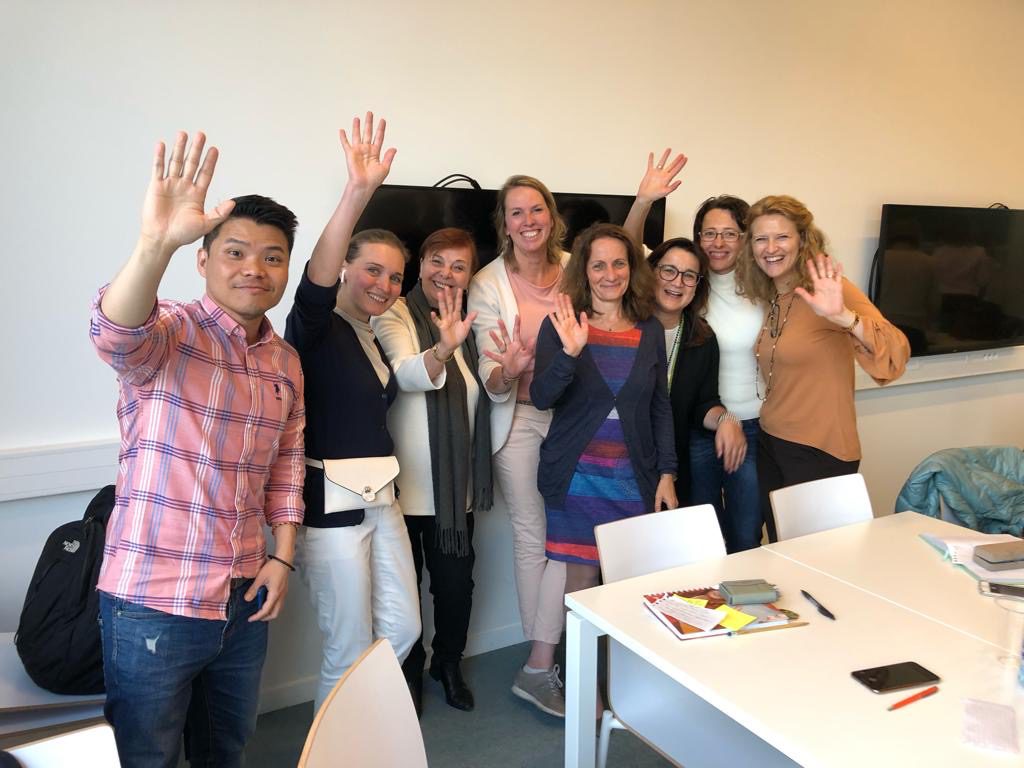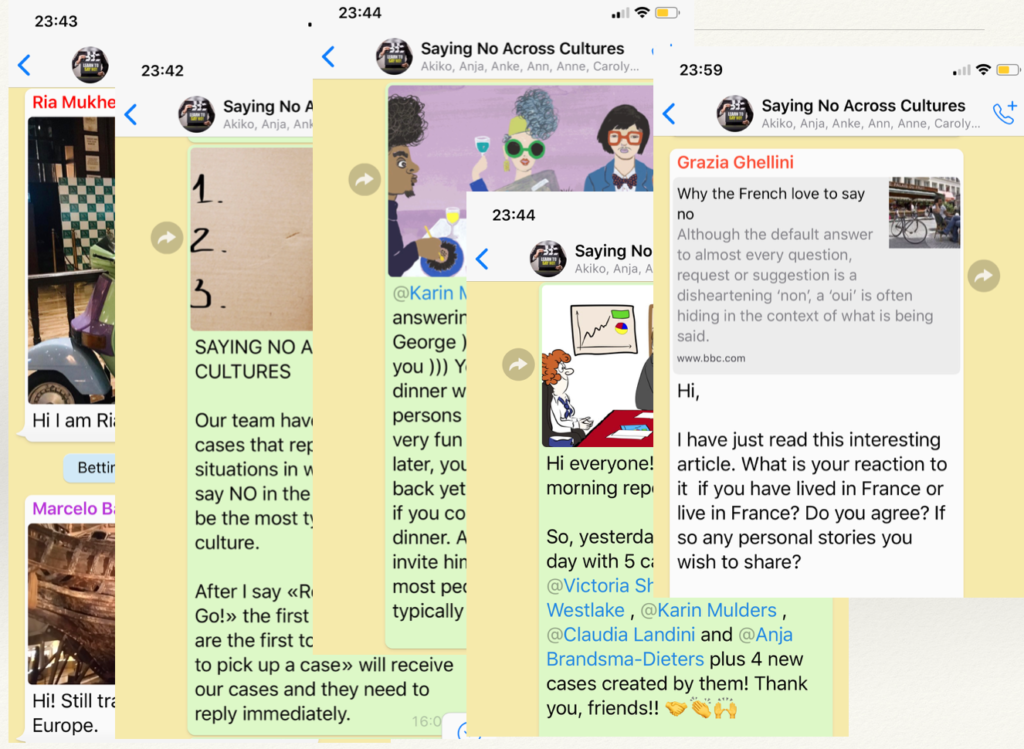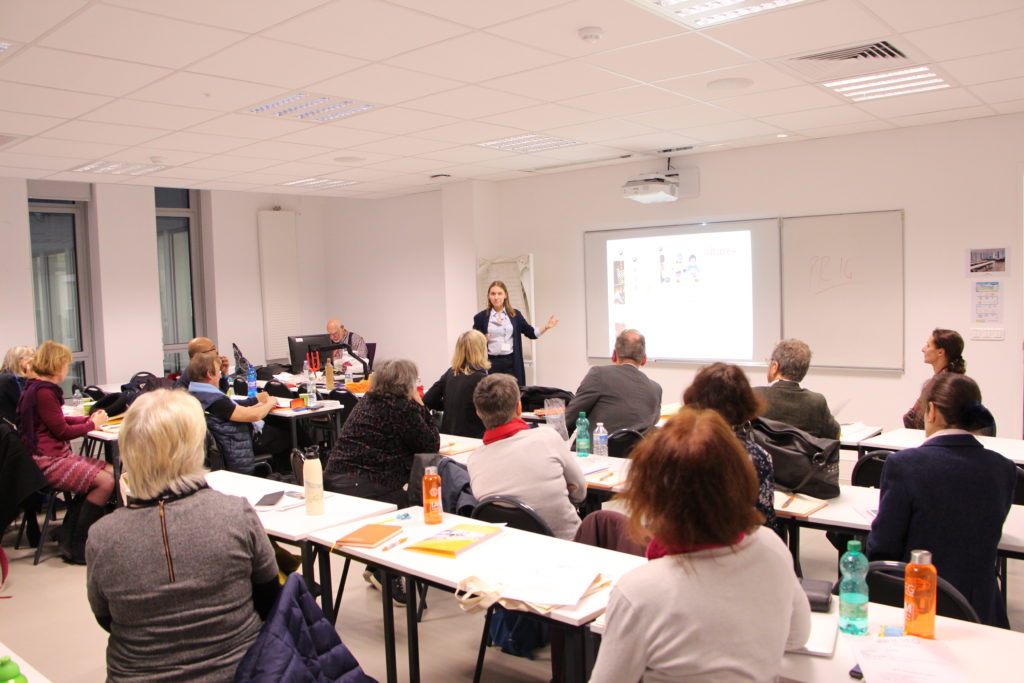Just Don’t Say NO game story
“How do you develop your games, Maria? Could you share your creative experience?” one of our recent Gamification for Intercultural Intelligence Workshop participants asked me. This nice French guy gifted me an idea that I should share the stories of how my games were created. Each of them has a unique background and context in which they were born. So, here is one of them.
It all started at the SIETAR Europa Congress 2019 in Leuven, Belgium, where a team of interculturalists including myself were conducting a pre-congress workshop on Gamification for Intercultural Training. The final part of it offered teams of participants and co-facilitators to develop new game ideas.

By telling this story I would like to express gratitude to our team whom collaboration with became a source of inspiration to my game “Just Don’t Say NO”. Our fantastically diverse interculturalist team consisting of Grazia Ghellini, Sacha Tanis Hopmans, Darren Chong, Luciele Milani, Katarzyna Grzesik-Harz, Christel Popken, Ivone MilaniI and myself started by having a question: “If high-context cultures don’t say NO directly, then what do they say instead?”.
It became a good starting point to develop a game prototype “Saying NO Across Cultures” intended to discover a variety of refusal styles typical for different cultures (starting from the most direct ones to the most indirect ones). Basically, it consisted of a set of cases that required players to refuse to do something by saying something. Played in a diverse group it was meant to create a learning-by-sharing effect.
We were so excited with the game that we decided to run it in a wide international audience (in Whatsapp).

The game went for 5 days and nights and revealed to us that saying NO does not only differ across cultures, but also has a lot of deep cultural layers that make this task a really sensitive issue that needs to be considered in intercultural interaction.
I got so interested in this topic that I decided to continue studying it by launching a global survey. I created a “menu” of sample refusals from the most direct ones to the most indirect ones, and asked people from all over the world to take this survey by choosing refusals from the “menu” that they may typically hear in their cultures.
Both the Whatsapp game and the survey conducted, generated an exuberant material that I analysed and developed a sequel of the initial “Saying NO Across Cultures” into “Just don’t say NO” game.
The idea is that refusal, or denial is one of the most sensitive communication units that is extremely demonstrative when studying and practicing different communication styles. In other words, if you want to feel differences in communication styles, try to say NO in a number of ways that will be appropriate in the USA, England, Italy, France, India, Syria, China or Japan. So, what exactly the Just Don’t Say NO game is, is a deliberate technology of learning and actually training communication style adaptability. It allows players to feel and try the most unusual and alien styles in a game, instead of having an egg on their face in a real communication.
The Just Don’t Say NO game is available for intercultural trainers, lecturers, teachers, facilitators and all other kind of practitioners worldwide. To see the game description and terms or purchase, please follow this link.
